When the Nvidia GeForce RTX 5090 was released, it didn't bring the significant generational leap many expected, especially considering its steep price. However, the Nvidia GeForce RTX 5070 Ti, while not dramatically faster than its predecessor, offers a more budget-friendly option, making it the most sensible choice from Nvidia's Blackwell series for those not looking to splurge.
Priced at a base of $749, the RTX 5070 Ti excels as a 4K graphics card, effectively overshadowing the pricier RTX 5080. It's worth noting that the model I reviewed was an aftermarket version from MSI, priced at $1,099, which exceeds the RTX 5080's $999. If you manage to snag the RTX 5070 Ti at its starting price, it's likely the best choice for most gamers, particularly those eyeing 4K gaming.
Purchasing Guide
The Nvidia GeForce RTX 5070 Ti hits the market on February 20, 2025, with a starting price of $749. Be aware, though, that various models will be available at higher prices. At $749, it's a great value, but its appeal diminishes as the price approaches that of the RTX 5080.
Nvidia GeForce RTX 5070 Ti – Photos
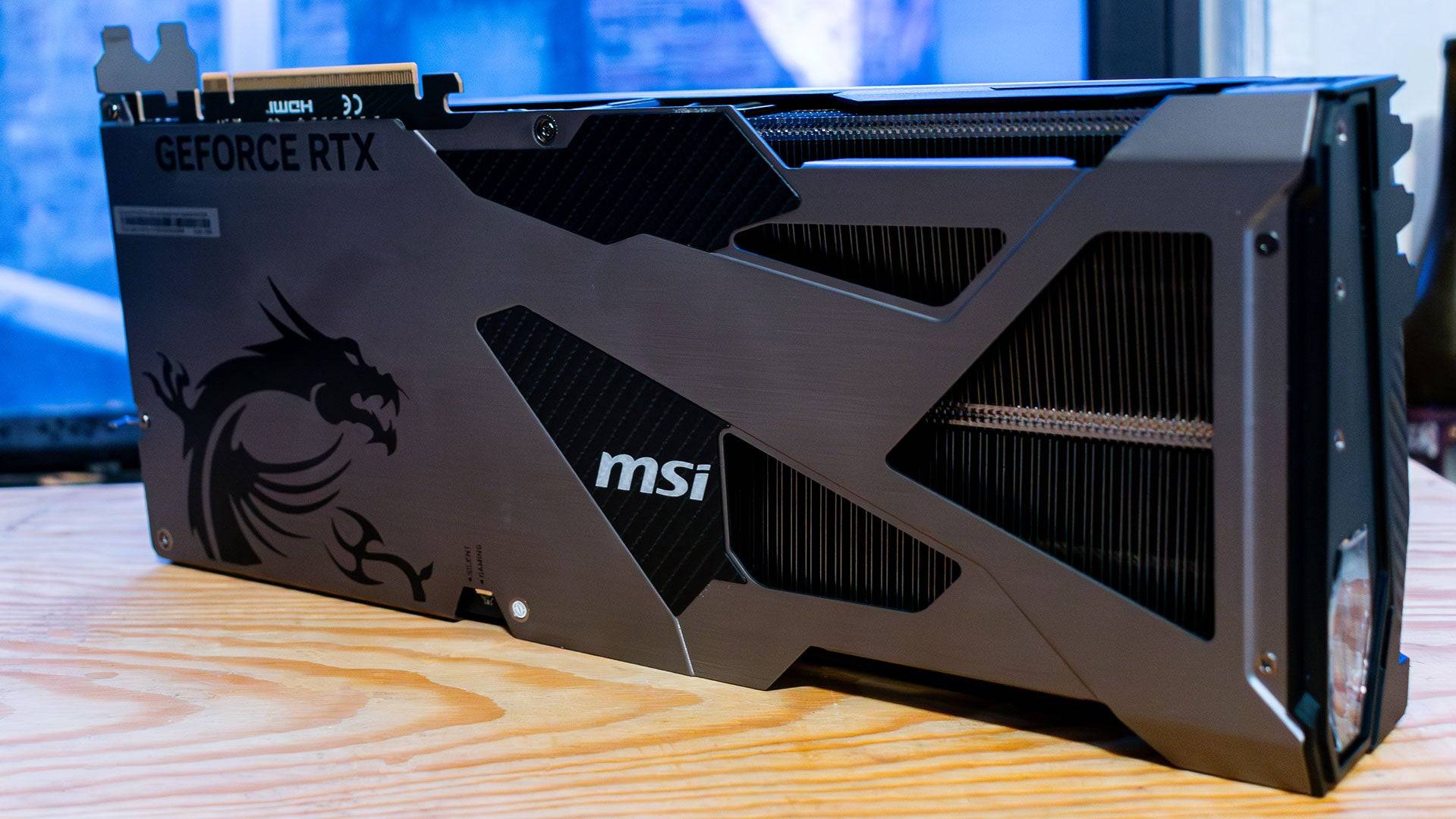
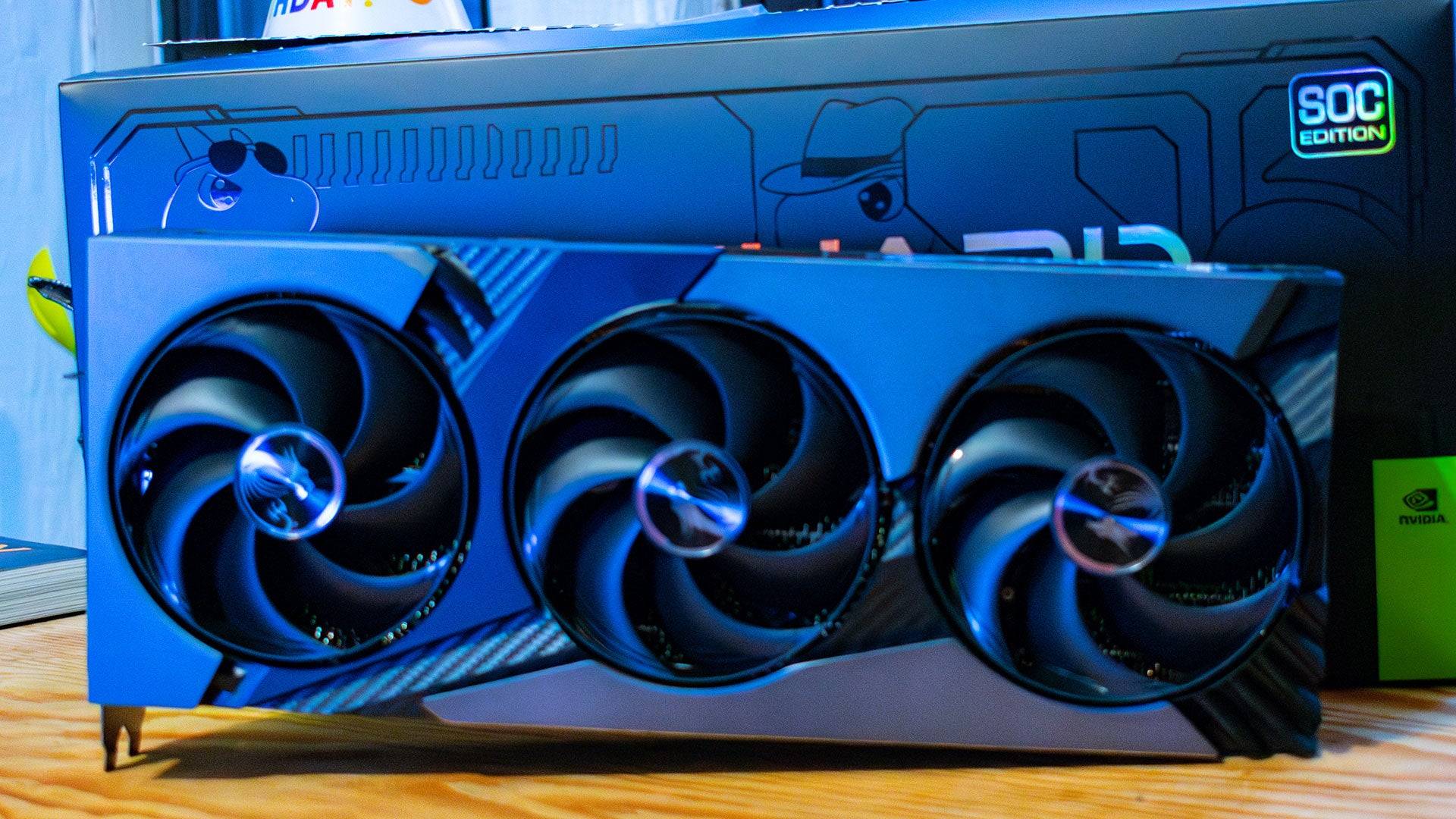 6 Images
6 Images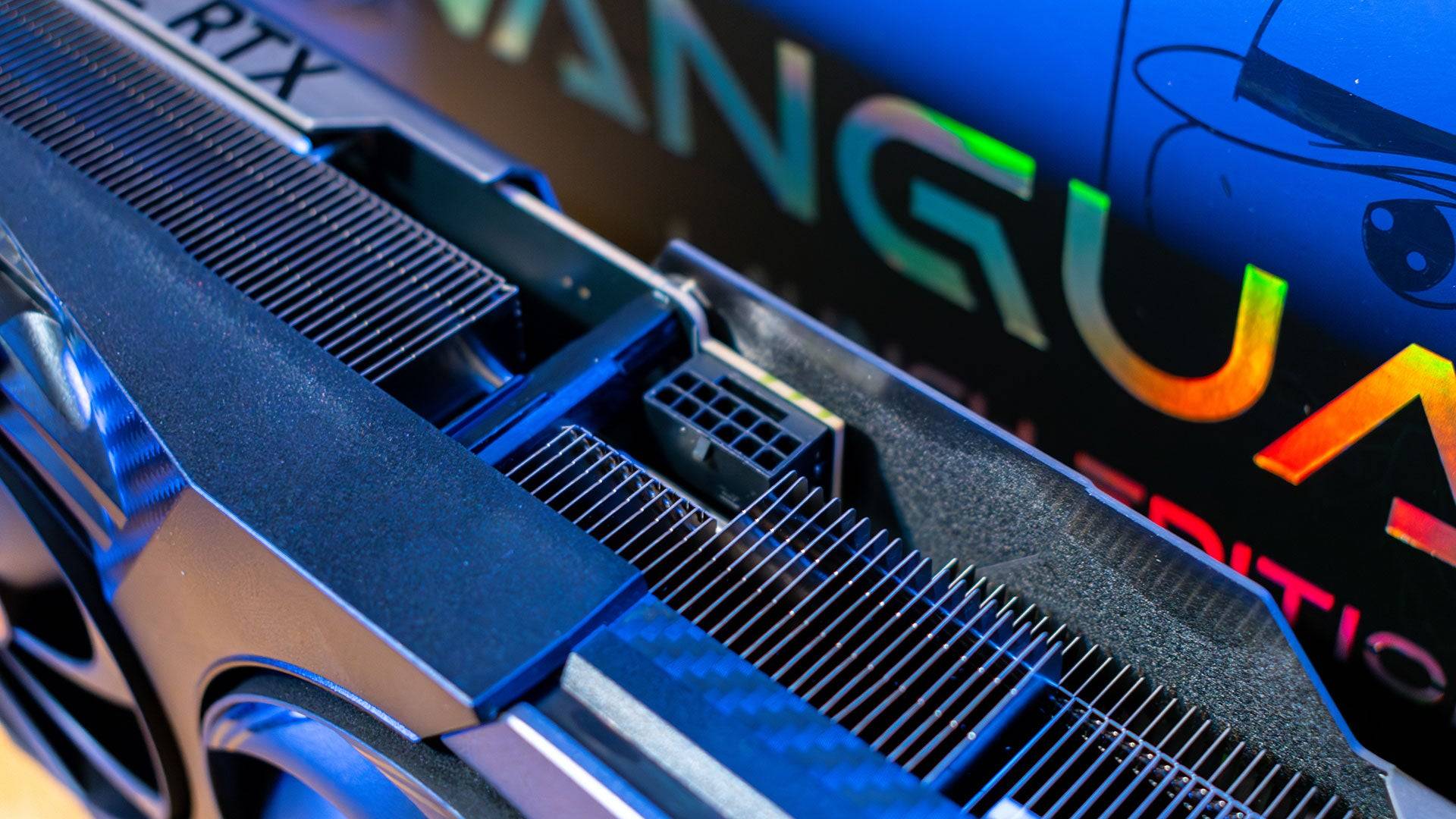
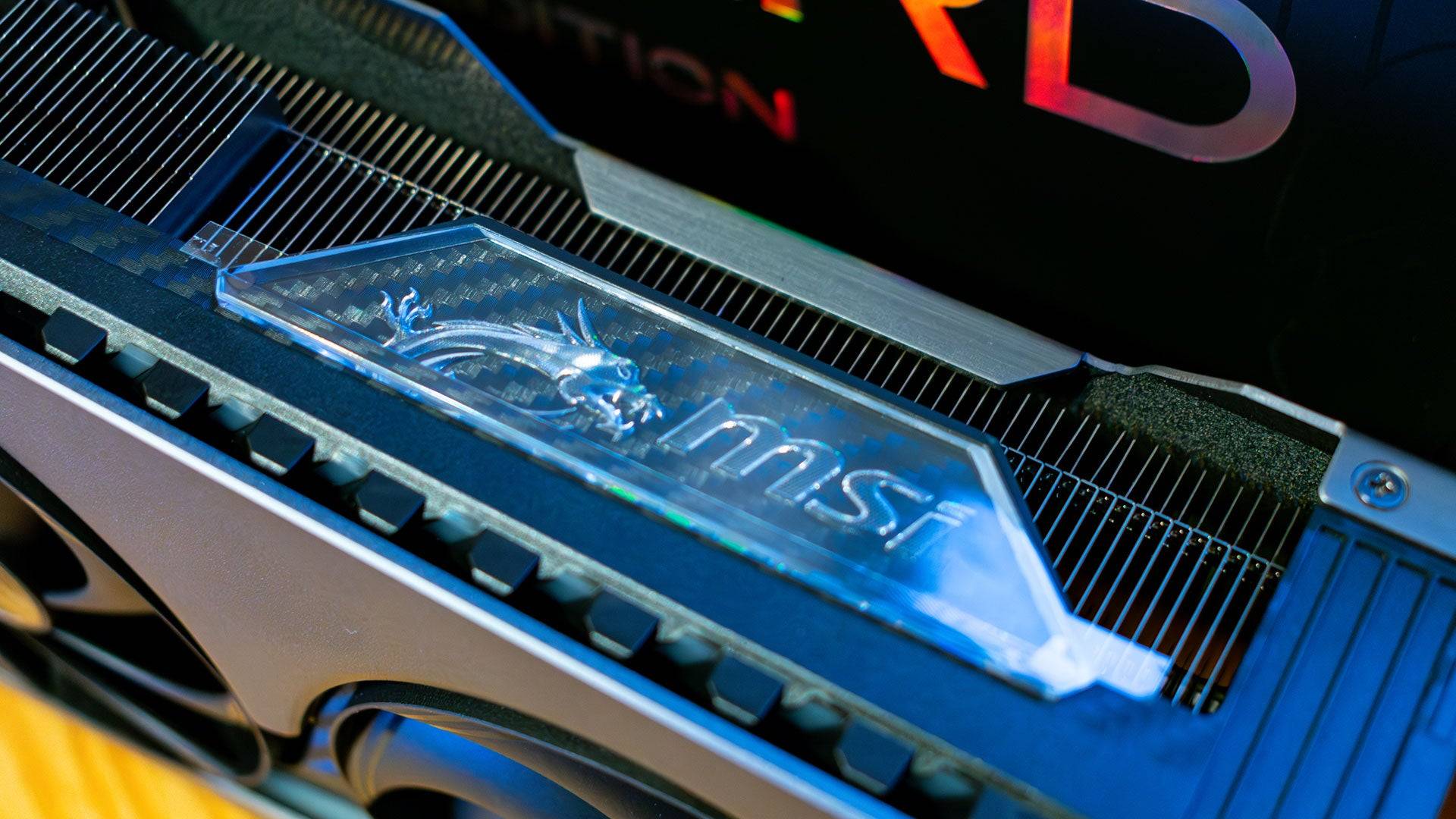
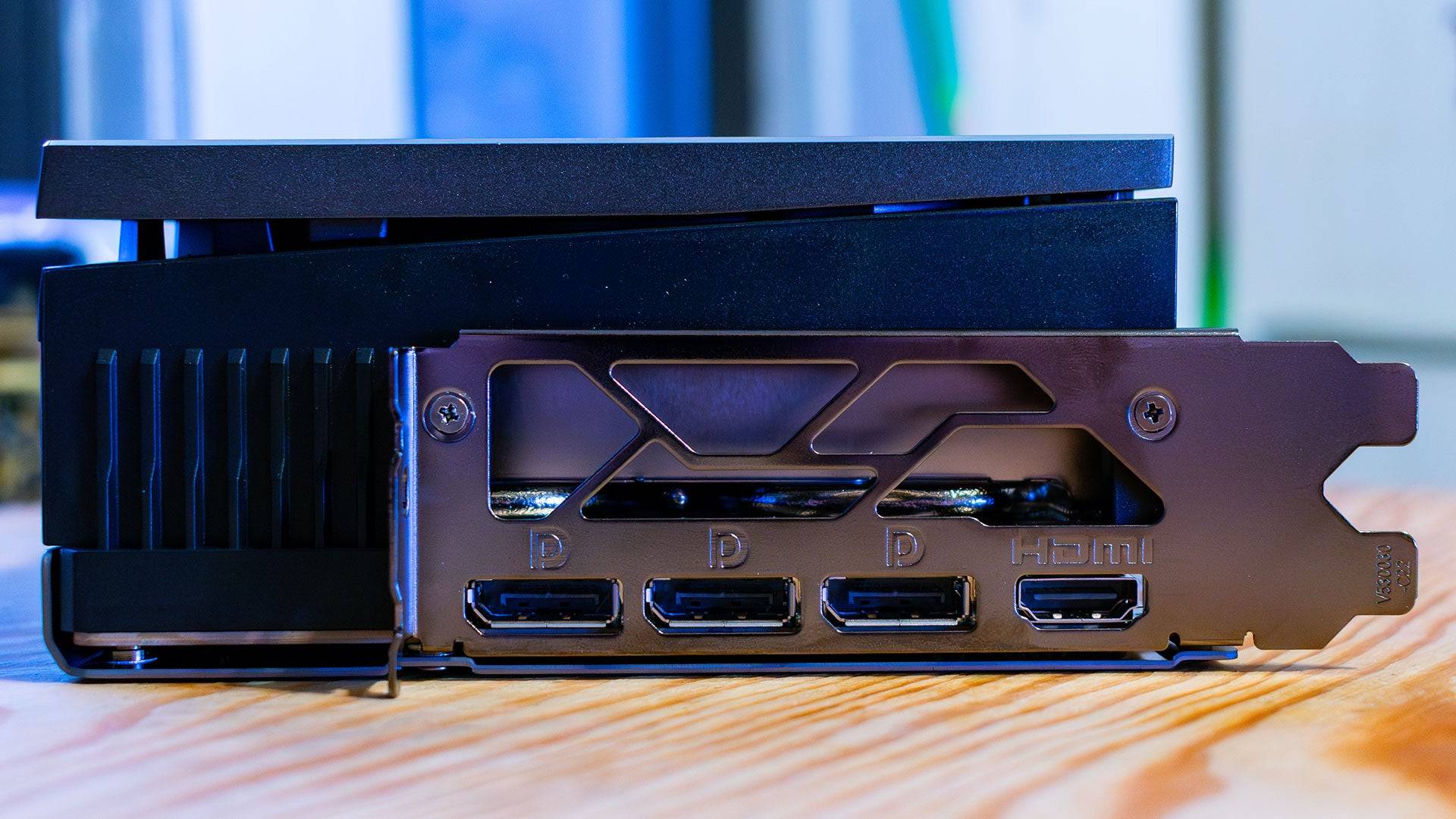

Specs and Features
The Nvidia GeForce RTX 5070 Ti is the third GPU to feature Nvidia's Blackwell architecture, originally designed for AI supercomputers and now adapted for gaming. It uses the same GB203 GPU as the RTX 5080 but with 14 of the 84 streaming multiprocessors (SM) disabled, resulting in 70 SMs, 8,960 CUDA cores, 70 RT cores, and 280 Tensor Cores. It comes equipped with 16GB of GDDR7 RAM, albeit slightly slower than the RTX 5080's.
The real highlight of the RTX 5070 Ti is its Tensor Cores, which, along with a new AI Management Processor (AMP), enhance the efficiency of DLSS and frame generation. The updated DLSS 4 now utilizes a Transformer model for superior image quality, reducing artifacts like ghosting. Additionally, DLSS 4 introduces Multi-Frame Generation (MFG), which can generate up to three frames for every one rendered, potentially quadrupling frame rates, though with increased latency. Nvidia's Reflex technology helps mitigate this latency increase.
With a Total Board Power of 300W, the RTX 5070 Ti is only marginally more power-intensive than its predecessor. Nvidia suggests a 750W power supply, but for peace of mind, especially with high-end models like the MSI Vanguard Edition, an 850W PSU is recommended.
DLSS 4 – Is It Worth It?
The RTX 5070 Ti's performance is enhanced by Nvidia's DLSS 4 and multi-frame generation, which are pivotal for maximizing the potential of high-refresh-rate gaming monitors. MFG analyzes rendered frames and motion data to predict and generate new frames, with the capability to produce up to three additional frames per rendered frame. This can theoretically increase frame rates significantly, though it comes with higher latency that Reflex aims to counteract.
In Cyberpunk 2077, the RTX 5070 Ti achieved 46 fps at 4K with Ray Tracing Overdrive and DLSS on performance mode, jumping to 157 fps with 4x frame generation, though with increased latency. In Star Wars Outlaws, it hit 67 fps at 4K Max settings, rising to 188 fps with 4x frame generation and a minimal latency increase.
While MFG enhances smoothness on high-refresh displays, it doesn't improve responsiveness. However, the latency increases are minor, especially at higher frame rates, ensuring smooth gameplay without noticeable lag.
Nvidia GeForce RTX 5070 Ti – Benchmarks
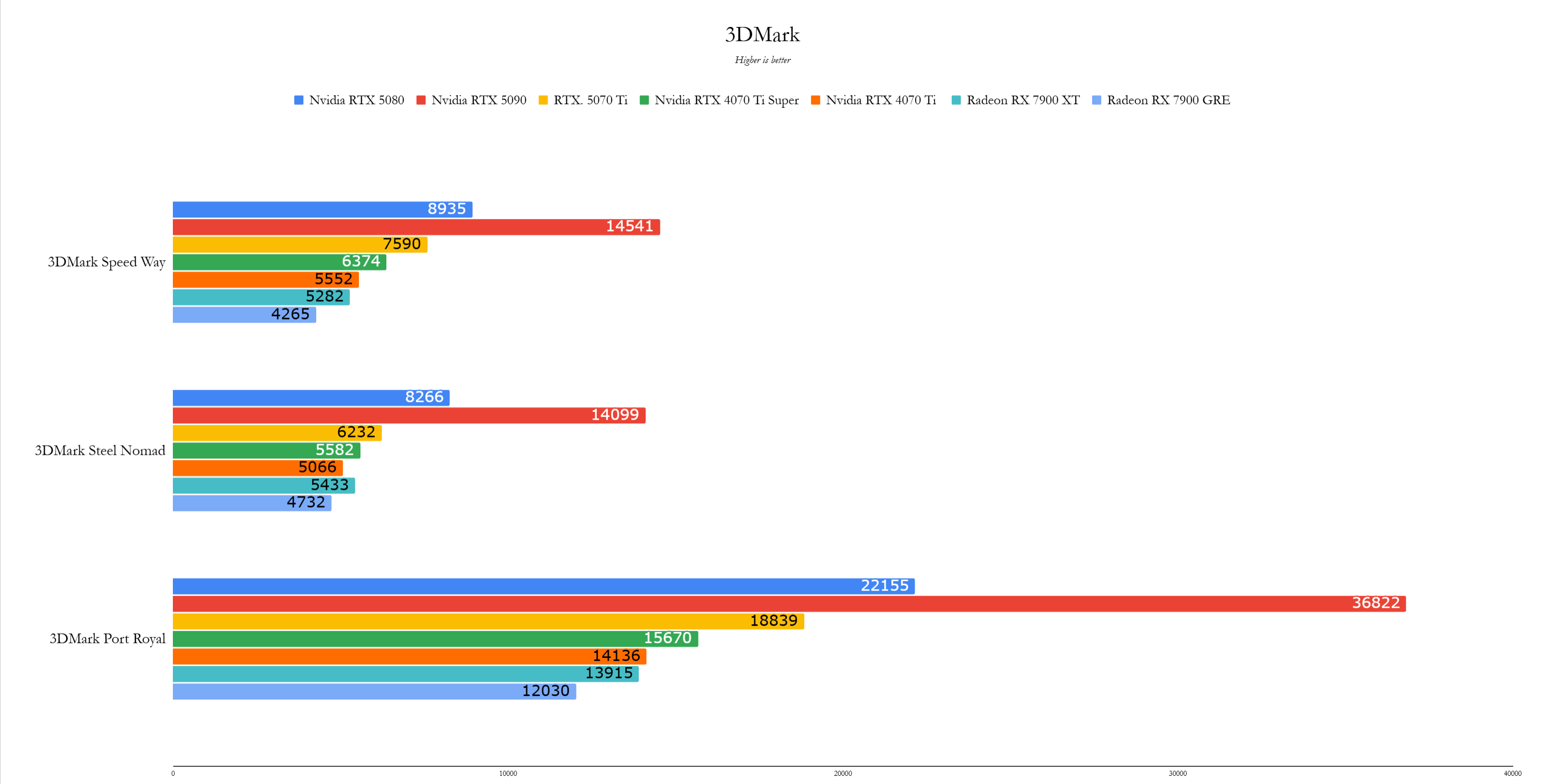
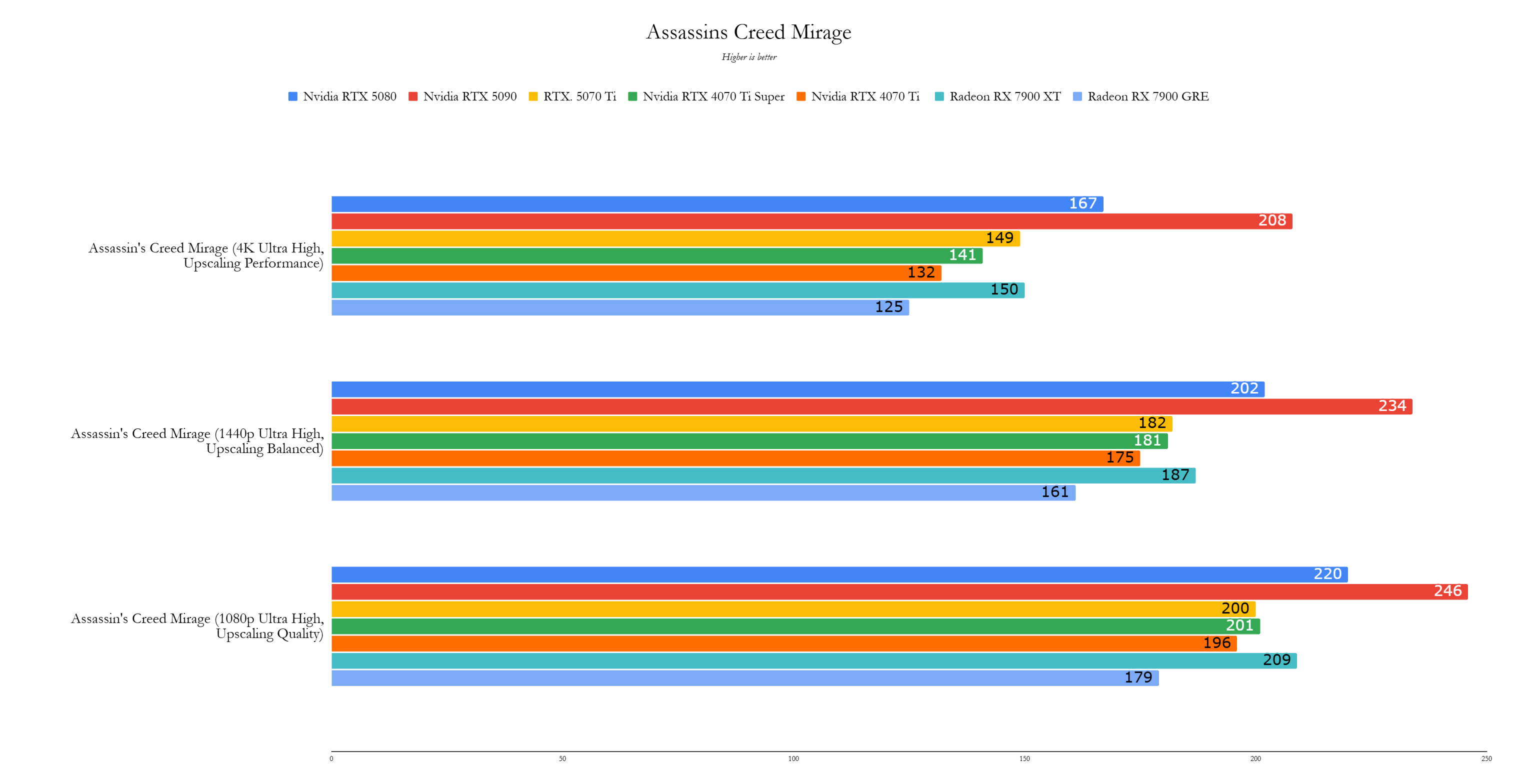 12 Images
12 Images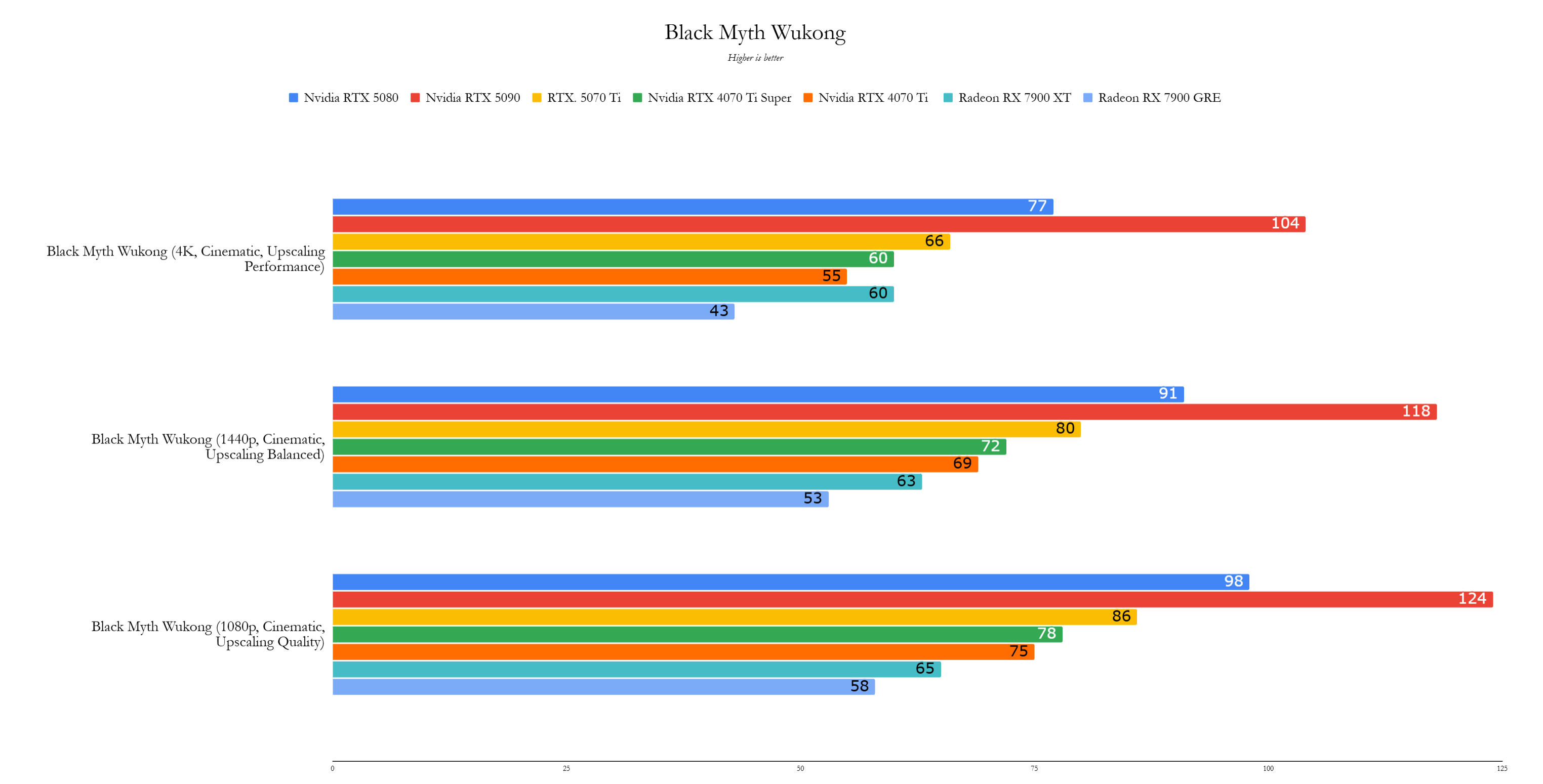
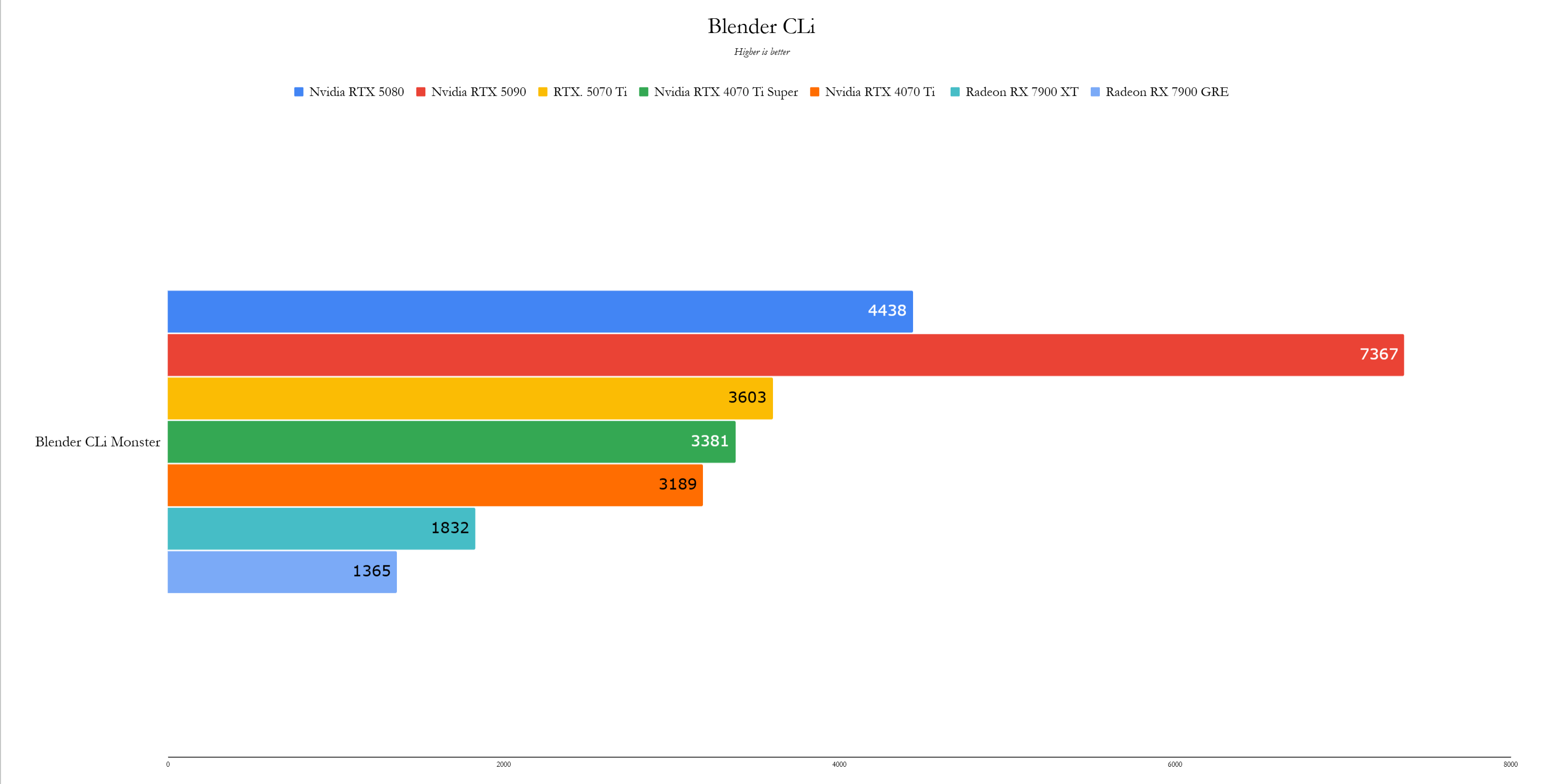
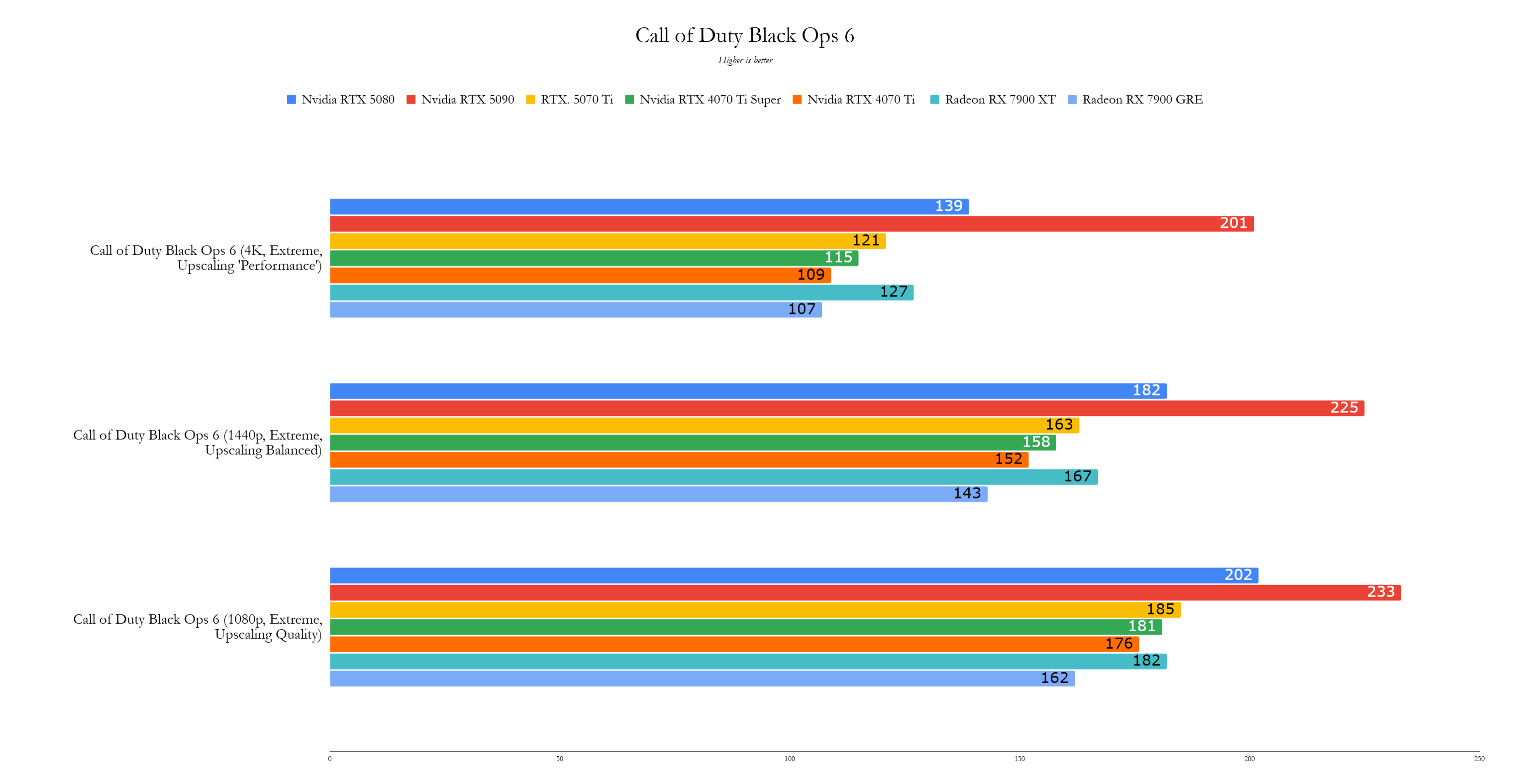
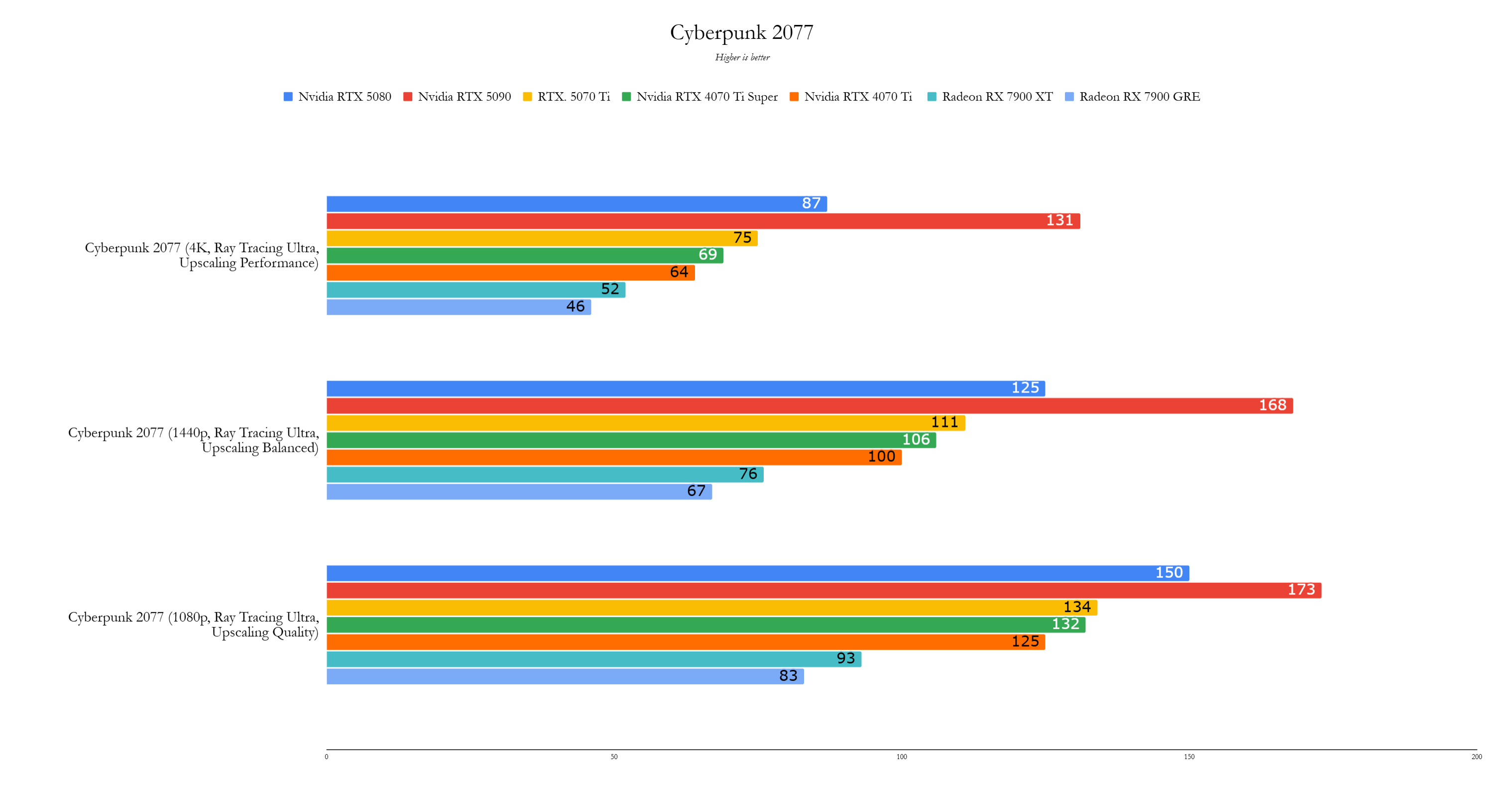
Performance
At 4K, the RTX 5070 Ti outperforms the RTX 4070 Ti Super by 11% and the RTX 4070 Ti by 21%, marking a significant generational improvement. It consistently delivered over 60 fps in demanding titles like Black Myth Wukong and Cyberpunk 2077.
The test system used included an AMD Ryzen 7 9800X3D CPU, an Asus ROG Crosshair X870E Hero motherboard, 32GB of G.Skill Trident Z5 Neo RAM at 6,000MHz, a 4TB Samsung 990 Pro SSD, and an Asus ROG Ryujin III 360 CPU cooler. The RTX 5070 Ti was tested at stock settings to reflect typical performance at its MSRP of $749.
In 3DMark Speed Way, the RTX 5070 Ti scored 7,590 points, significantly ahead of the RTX 4070 Ti Super's 6,374 and the RTX 4070 Ti's 5,552. In Port Royal, it achieved 18,839 points, demonstrating its potential for future performance gains as drivers and game optimizations evolve.
In gaming, the RTX 5070 Ti showed varied results. In Call of Duty: Black Ops 6 at 4K Extreme, it achieved 121 fps, a modest 5% improvement over the RTX 4070 Ti Super. In Cyberpunk 2077 with Ray Tracing Ultra at 4K, it delivered 75 fps, a solid 9% and 17% lead over the RTX 4070 Ti Super and RTX 4070 Ti, respectively. Metro Exodus: Enhanced Edition saw the RTX 5070 Ti at 48 fps, slightly ahead of the RTX 4070 Ti Super's 45 fps.
However, in Red Dead Redemption 2, it was 2% slower than the RTX 4070 Ti Super, though still achieving a high frame rate of 113 fps. Total War: Warhammer 3, without ray tracing or upscaling, saw the RTX 5070 Ti at 78 fps, a 15% and 30% improvement over the RTX 4070 Ti Super and RTX 4070 Ti, respectively.
Assassin's Creed Mirage saw the RTX 5070 Ti at 149 fps at 4K Ultra High, slightly ahead of the RTX 4070 Ti Super's 141 fps. In Black Myth Wukong, it managed 66 fps at 4K with DLSS at 40%, a 10% improvement over the RTX 4070 Ti Super. Forza Horizon 5 at 4K Extreme saw the RTX 5070 Ti at 152 fps, a 15% and 21% improvement over the RTX 4070 Ti Super and RTX 4070 Ti, respectively, and a 10% lead over the Radeon RX 7900 XT.
In today's market, even mid-range GPUs like the RTX 5070 Ti can handle 4K gaming effectively. If you can find it at its base price of $749, the Nvidia GeForce RTX 5070 Ti offers excellent value, especially for 4K gaming, providing a significant performance boost over its predecessor at a more affordable price point than the RTX 4070 Ti.



















